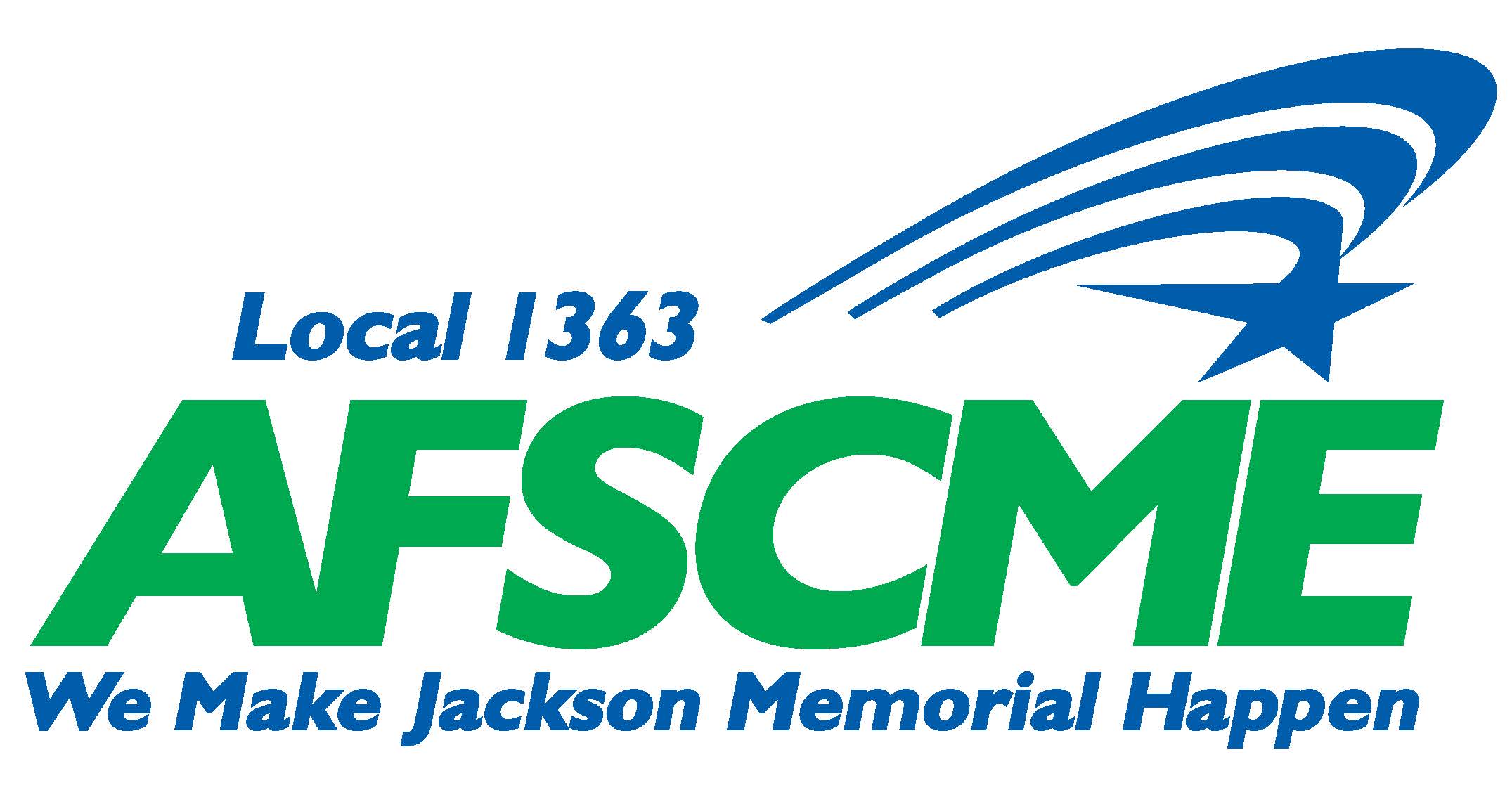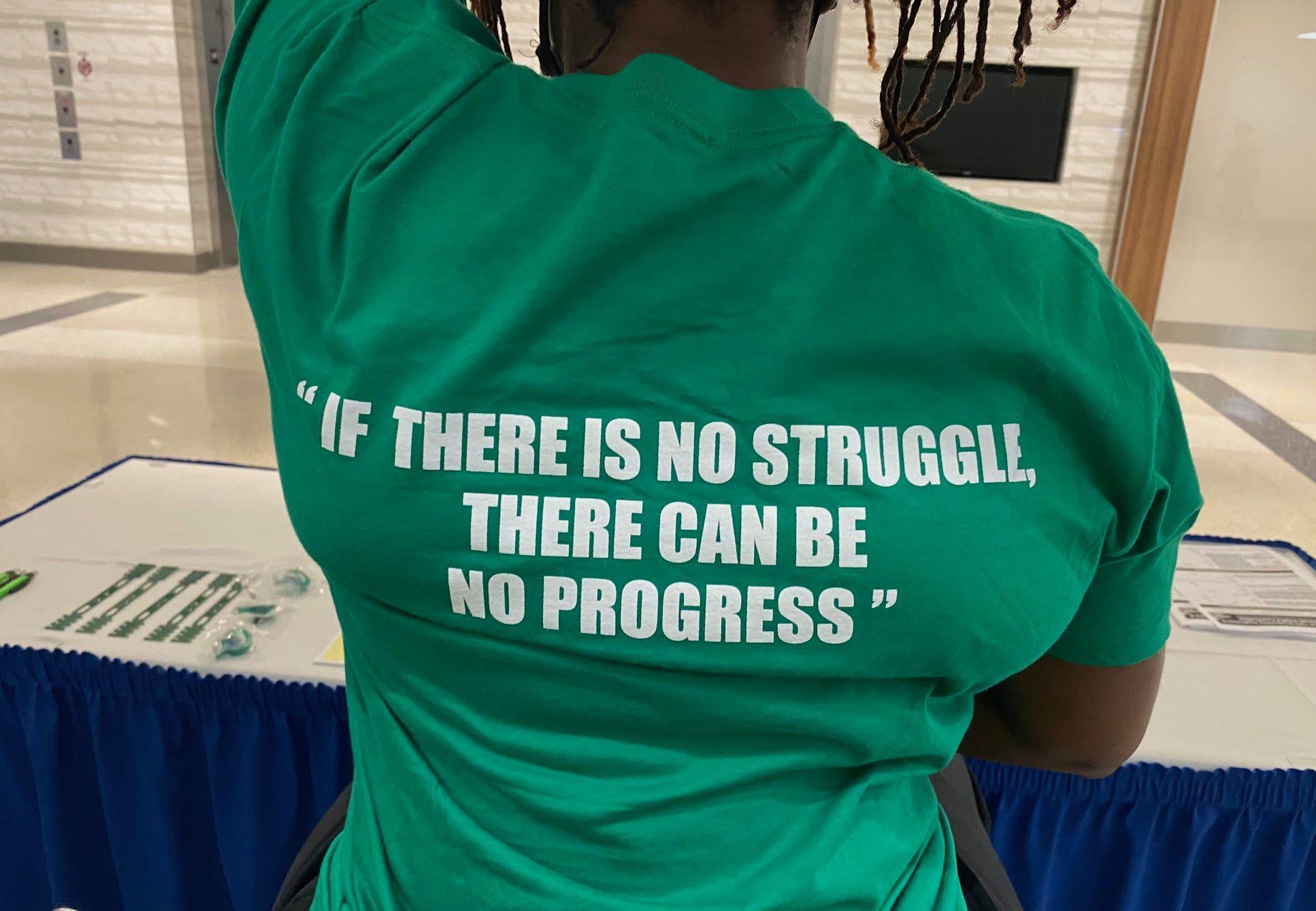When contract negotiations started last fall, Jackson Health System workers had weathered multiple surges of COVID-19.
The hardworking front-line staff of South Florida’s largest public safety-net health system were hopeful that their next Local 1363 (AFSCME Florida) contract would recognize how they pulled together to serve their community even when patients levels were high and staffing levels were battered by infections, burnout and more.
It did.
As cases reached record highs during the winter surge and again due to the Delta variant of the coronavirus, the emergency room techs, supply clerks, pharmacy assistants, mental health specialists, billing clerks, cashiers and cooks, laboratory techs, groundskeepers, physical therapy aides and others who are part of Local 1363 became even more engaged. They filled out surveys, monitored negotiations over Zoom and never missed a chance to support the negotiating team.
All that activism was rewarded in late September when more than 98% voted in favor of their new contract. They also signed up more than 130 new members in just one day at ratification sites across Miami-Dade County.
“Throughout negotiations, we kept saying we had to stay as strong and united at the table as we had been throughout the pandemic if we were going to get the contract we wanted,” said Abel Desvergunat, a recreation leader at Jackson Memorial Perdue Medical Center and a member of the bargaining team. “Because COVID kept impacting the process, we built a really strong internal communications network to let people know as soon as things changed. And that paid off with increased activism and support that management couldn’t ignore.”
Members won an immediate 2% retroactive pay increase as well as a minimum 3% base-pay adjustment, part of market-rate adjustments that includes a new $15 per hour minimum wage. An additional 2% bonus and annual 3% pay increases, just minor increases to health insurance premiums and much stronger call-back language prompted workers to overwhelmingly vote yes.
“When management proposed zero pay increases in years two and three and COVID kept throwing any long-term planning into chaos, we knew we were up for a hard fight,” said Tarsha Laster, a patient care associate who also served on the bargaining team. “Now we are taking this new contract to every worksite and every shift so we can sign up even more of our co-workers and keep this momentum going.”

